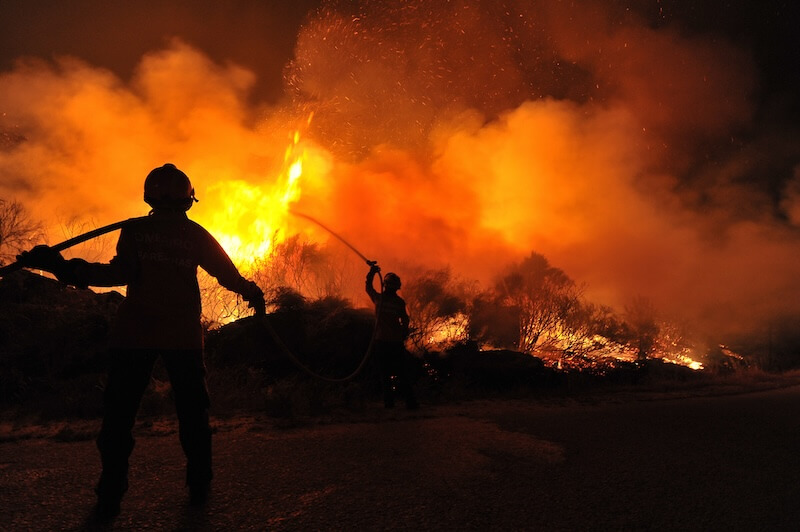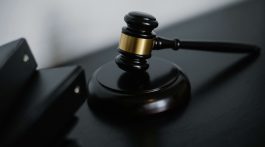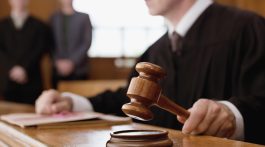Wildfires are natural disasters that can ravage homes, businesses, and entire communities, leaving behind destruction and devastation. In the aftermath of such events, understanding the extent of insurance coverage is crucial for individuals and businesses affected by wildfires. This article aims to provide comprehensive insights into the insurance coverage available for wildfire damages.
Types of Insurance Coverage
Homeowners Insurance
Homeowners insurance policies typically provide coverage for various aspects of wildfire damage. Here’s a closer look at the key components of homeowners insurance coverage:
- Property Damage: Homeowners insurance typically covers the cost of repairing or rebuilding your home if it’s damaged or destroyed by a wildfire. This coverage extends to structural damage, including walls, roofs, and other parts of the dwelling.
- Additional Living Expenses: If you’re forced to evacuate your home due to a wildfire, homeowners insurance can help cover additional living expenses. This includes expenses such as temporary lodging, meals, and transportation while your home is uninhabitable.
- Personal Belongings: Homeowners insurance also provides coverage for personal belongings damaged or destroyed in a wildfire. This includes furniture, clothing, electronics, and other items within the home.
Renters Insurance
Renters insurance offers protection for tenants renting properties in wildfire-prone areas. Here’s what renters insurance typically covers:
- Personal Property: Similar to homeowners insurance, renters insurance covers the cost of replacing personal belongings damaged by a wildfire. This includes furniture, electronics, clothing, and other possessions belonging to the tenant.
- Liability Coverage: Renters insurance includes liability coverage, which protects tenants from legal responsibility if someone is injured on the rental property due to wildfire-related damages. This coverage extends to medical expenses and legal fees associated with liability claims.
Business Insurance
Business owners also rely on insurance coverage to protect their assets and operations from wildfire damages. Here’s how business insurance can help mitigate the impact of wildfires:
- Property Damage: Business insurance typically covers damage to commercial buildings, equipment, inventory, and other assets caused by wildfires. This coverage helps businesses recover and rebuild in the aftermath of a wildfire.
- Business Interruption Coverage: In addition to property damage, business insurance often includes coverage for business interruption. This coverage helps compensate for lost income and ongoing expenses if a business is forced to suspend operations due to wildfire damages.
- Liability Coverage: Business insurance includes liability coverage, which protects business owners from lawsuits related to wildfire damages. This coverage extends to third-party injuries, property damage, and legal expenses associated with liability claims.
Factors Affecting Coverage
Several factors can influence the extent of insurance coverage for wildfire damages. It’s important for policyholders to consider these factors when reviewing their insurance policies:
Type of Policy
- Basic vs. Comprehensive Policies: Comprehensive insurance policies typically offer broader coverage than basic policies. Policyholders can choose the level of coverage that best suits their needs and budget.
- Specific Coverage Endorsements: Policyholders can often add endorsements or riders to their insurance policies to enhance coverage for specific risks, such as wildfires. These endorsements provide additional protection against wildfire damages and related expenses.
Location
- Proximity to High-Risk Wildfire Areas: Homes and businesses located in high-risk wildfire areas may face higher insurance premiums and stricter coverage requirements. Insurance companies assess the level of risk associated with the property’s location when determining coverage and pricing.
- State Regulations and Insurance Requirements: State laws and regulations may dictate the minimum insurance coverage required for properties located in wildfire-prone regions. Policyholders should be aware of any state-specific requirements and ensure their insurance policies comply with these regulations.
Insurance Company Policies
- Exclusions and Limitations: Insurance policies may contain exclusions or limitations on coverage for certain types of damages or events, including wildfires. Policyholders should review their insurance policies carefully to understand any exclusions or limitations that may affect coverage for wildfire damages.
- Policyholder Responsibilities: Policyholders have responsibilities to maintain their properties and adhere to safety guidelines to mitigate the risk of wildfires. Insurance companies may require policyholders to take certain preventive measures to reduce the likelihood of wildfire damage and maintain eligibility for coverage.
What steps should I take if my property is damaged by a wildfire?
In the event of wildfire damage to your property, it’s essential to prioritize safety and then take the following steps:
- Ensure everyone’s safety and evacuate if necessary.
- Contact emergency services and report the wildfire damage.
- Document the damage by taking photographs or videos.
- Contact your insurance company to file a claim and initiate the claims process.
- Keep records of all communication with your insurance company and any expenses related to the wildfire damage.
Will insurance cover the cost of rebuilding my home if it’s destroyed by a wildfire?
Homeowners insurance typically covers the cost of rebuilding your home if it’s destroyed by a wildfire, up to the policy’s coverage limits. This includes structural damage and may also cover additional living expenses while your home is being rebuilt. However, it’s essential to review your policy and understand any limitations or exclusions that may apply.
Are there any additional coverages I can purchase to protect against wildfire damages?
Depending on your insurance provider and policy, you may have the option to purchase additional coverages or endorsements specifically for wildfire damages. These additional coverages may provide enhanced protection for your property, personal belongings, and additional living expenses in the event of a wildfire.
What should I do if my insurance claim for wildfire damages is denied?
If your insurance claim for wildfire damages is denied, you have options to appeal the decision and seek resolution:
- Review the denial letter carefully to understand the reasons for the denial.
- Contact your insurance company to discuss the denial and seek clarification on any issues or discrepancies.
- Provide additional documentation or evidence to support your claim, if applicable.
- Consider seeking assistance from a Texas wildfire lawyer to help navigate the appeals process and advocate for your rights as a policyholder.
Understanding insurance coverage for wildfire damages is essential for homeowners, renters, and business owners living and operating in wildfire-prone areas. By familiarizing themselves with their insurance policies and considering factors that affect coverage, individuals and businesses can better prepare for and mitigate the financial impact of wildfires. It’s important to review insurance policies regularly, seek guidance from insurance professionals, and take proactive steps to protect against wildfire risks. In the event of a wildfire, prompt action and thorough documentation can help expedite the insurance claims process and facilitate recovery efforts.



No Comment